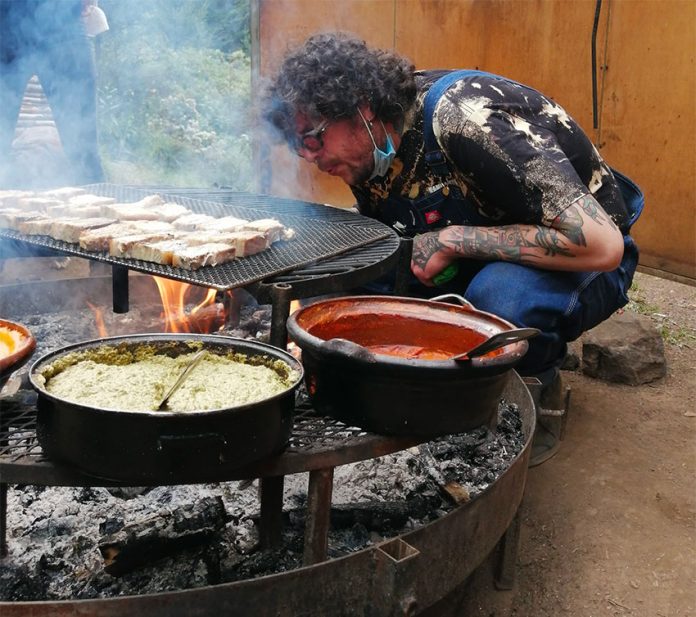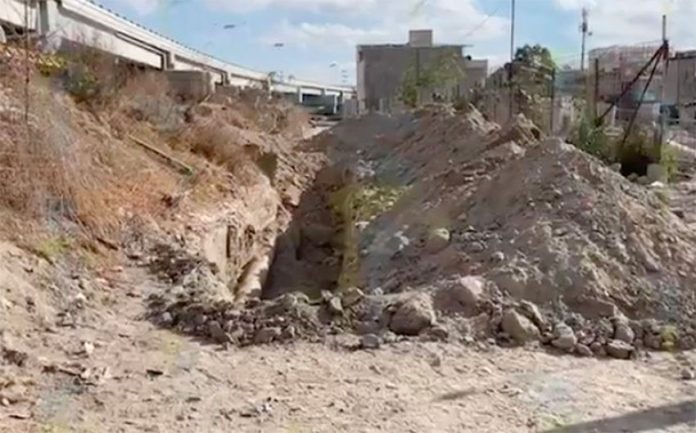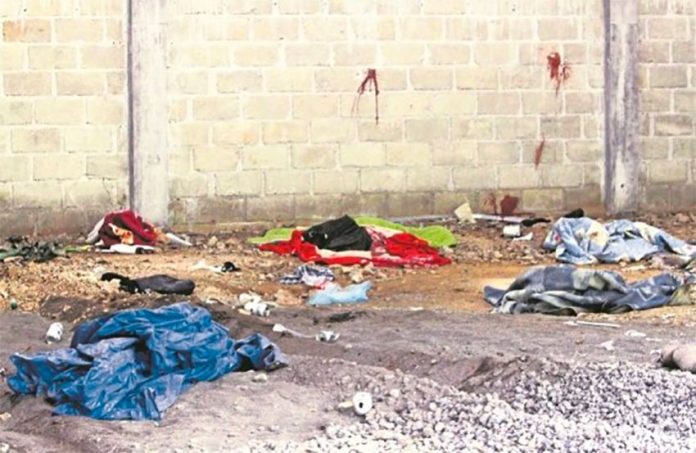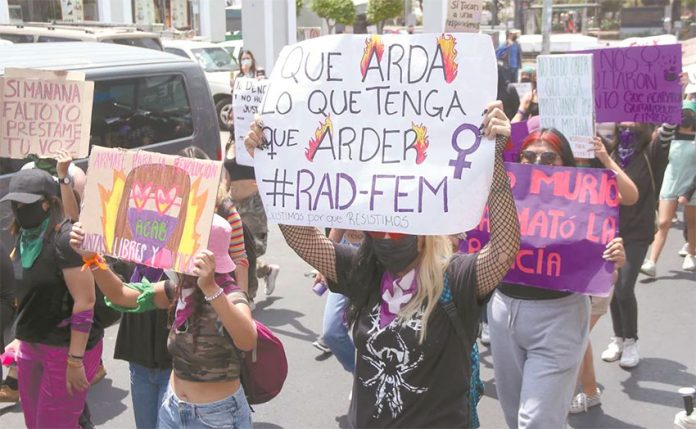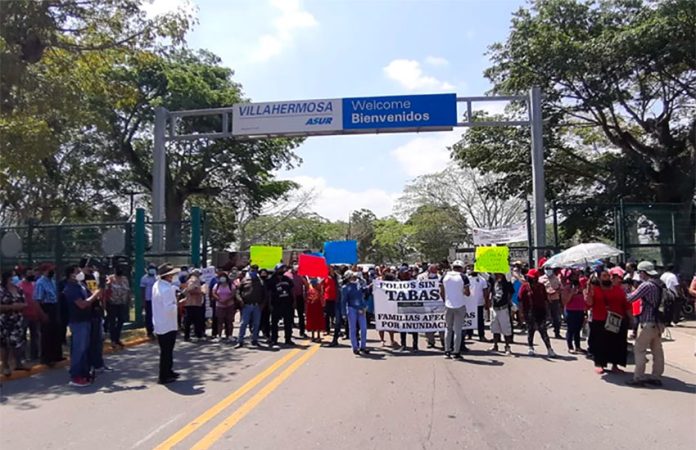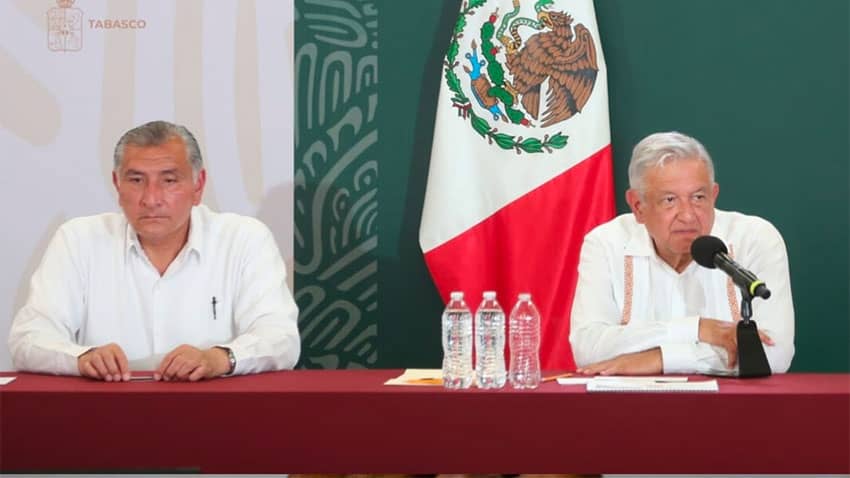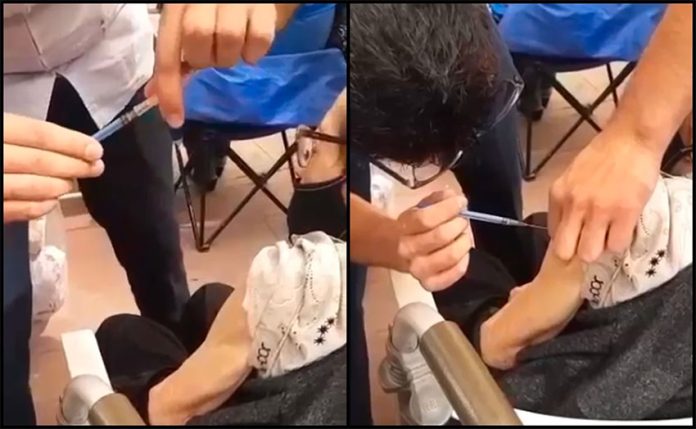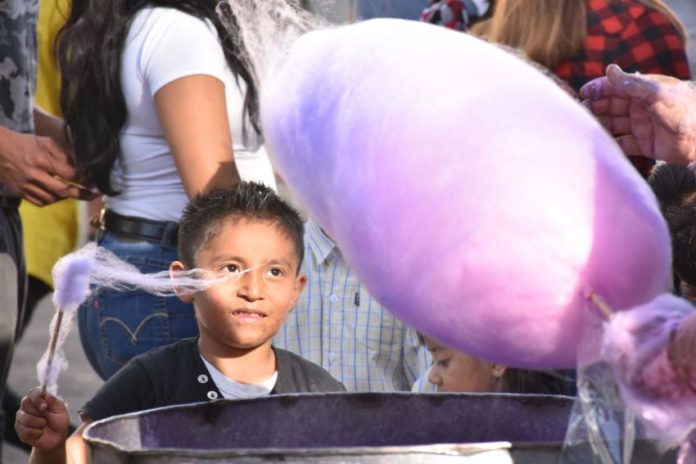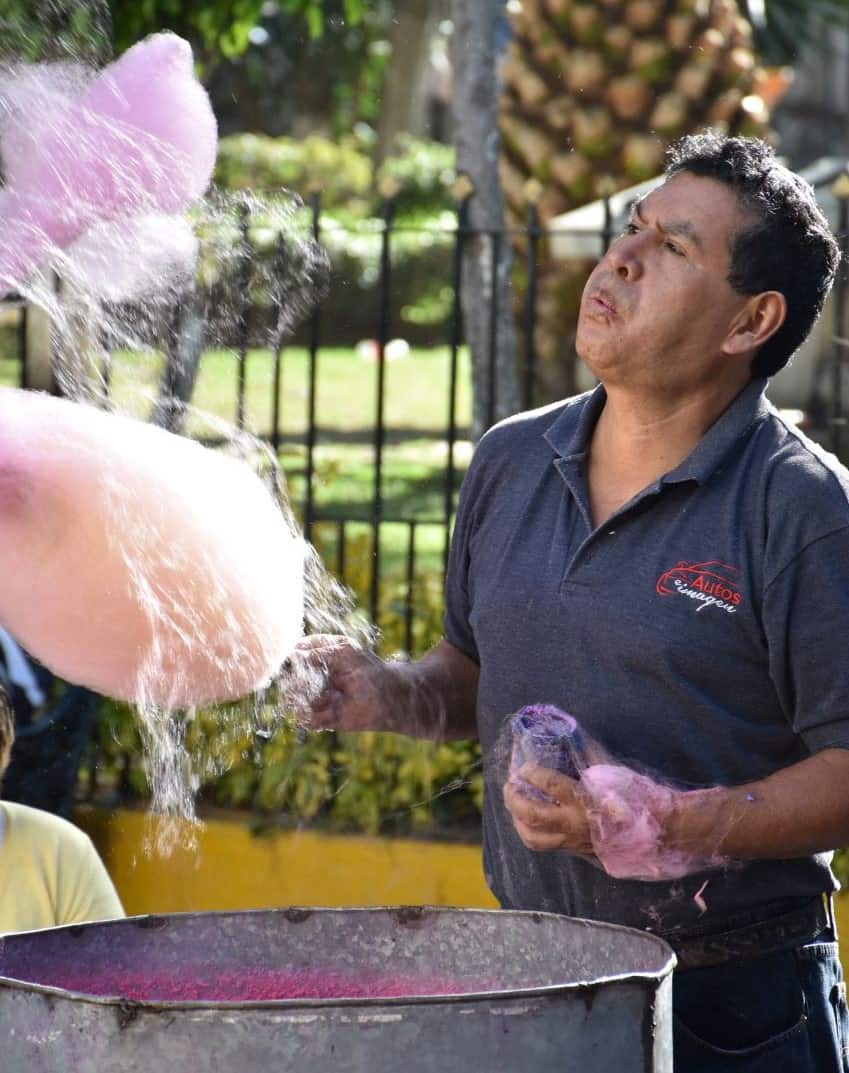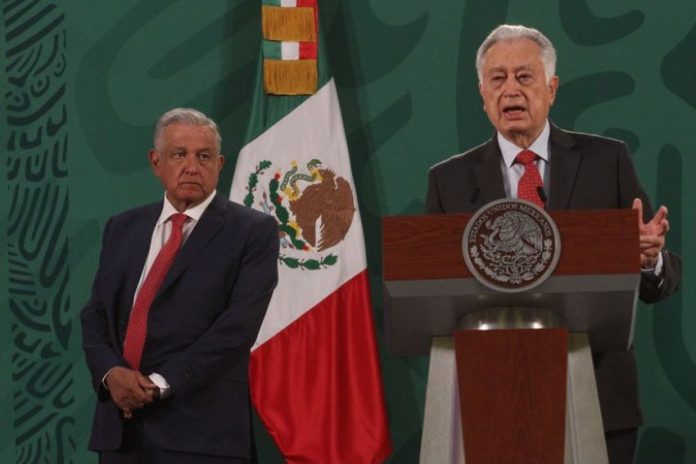A dog saunters by with the end of a beet in his mouth. Mellow 70s-style dancehall music plays somewhere in the distance. Elias Ahumada is manning the grill, and Carlos Tellez is prepping food on a long metal table in the middle of the banked-down dirt that serves as both Cubo’s front yard and its dining room. All around us are soldier-straight oyamel pines, adding just the slightest hint of pine to the scent of wood smoke coming from the firepit.
As Covid-19 continues to surge through Mexico City, it feels good to be outside in the fresh air, social but safe. The Cubo (cube) house is exactly what you would imagine — a perfect square, less than 100 square meters, with the entire front wall of the house opening as a massive door.
Just like a giant dollhouse, the peeled-back wall reveals the contents within — a loft for sleeping, a small living room with overstuffed chairs that face the woods, a collection of seemingly random books and knickknacks along the walls. Outside, a grassy yard arches up from the house, and small tables are set here and there for the 20-odd guests that have come out to spend their Sunday at Cubo.
This food experience that everyone is buzzing about was sparked five years ago when Roberto Lingard purchased the house from a cousin and came up on weekends to forage mushrooms in the fungi-rich land that surrounded it. He was working with the local mushroom foragers in the nearby town of Santa Ana Jilotzingo, selling their product to local high-end restaurants, when chefs started to ask him for a trip out to experience the foraging for themselves.
From those early barbecues among friends sprung the idea for events at Cubo, culinary experiences in a range of styles that Lingard and then-partner Diego Niño advertised on Airbnb Experiences. For six months, he and Niño tossed ideas around of how they wanted the events to work — high end or simple, monthly or daily. But then the pandemic brought everything to a halt. With most clients being foreign tourists, they were suddenly without a guest list.

So Cubo went off the radar for a few months. Then, in mid-summer of 2020, it suddenly reappeared.
“Mid-June, I thought I would start advertising again,” says Lingard, “and it turns out people were really eager to come here.”
In this second incarnation of Cubo, Lingard decided to pivot and invited several new collaborators to the project: Tellez, a local chef and mushroom fanatic, Anaís Martínez, a longtime food tour guide and Mexico City mover and shaker, and Ahumada, the owner of Metro Cacao, a local chocolate company.
The four turned their attention to a more local clientele and started offering all-day food and foraging experiences on the weekends for 20–25 people.
As soon as you enter the woods from the federal highway, there is a noticeable shift. The air is cleaner, your steps are softer and the atmosphere is quieter — that is until the four or five dogs that hang out at Cubo come joyfully bounding out of the woods to sniff you.
The day starts with a light breakfast and some coffee or Metro Cacao’s hot chocolate. Lingard leads the group in a short Otomí ritual around the fire to bless the food we will be eating, and the group sets off into the nine-acre woods to forage.
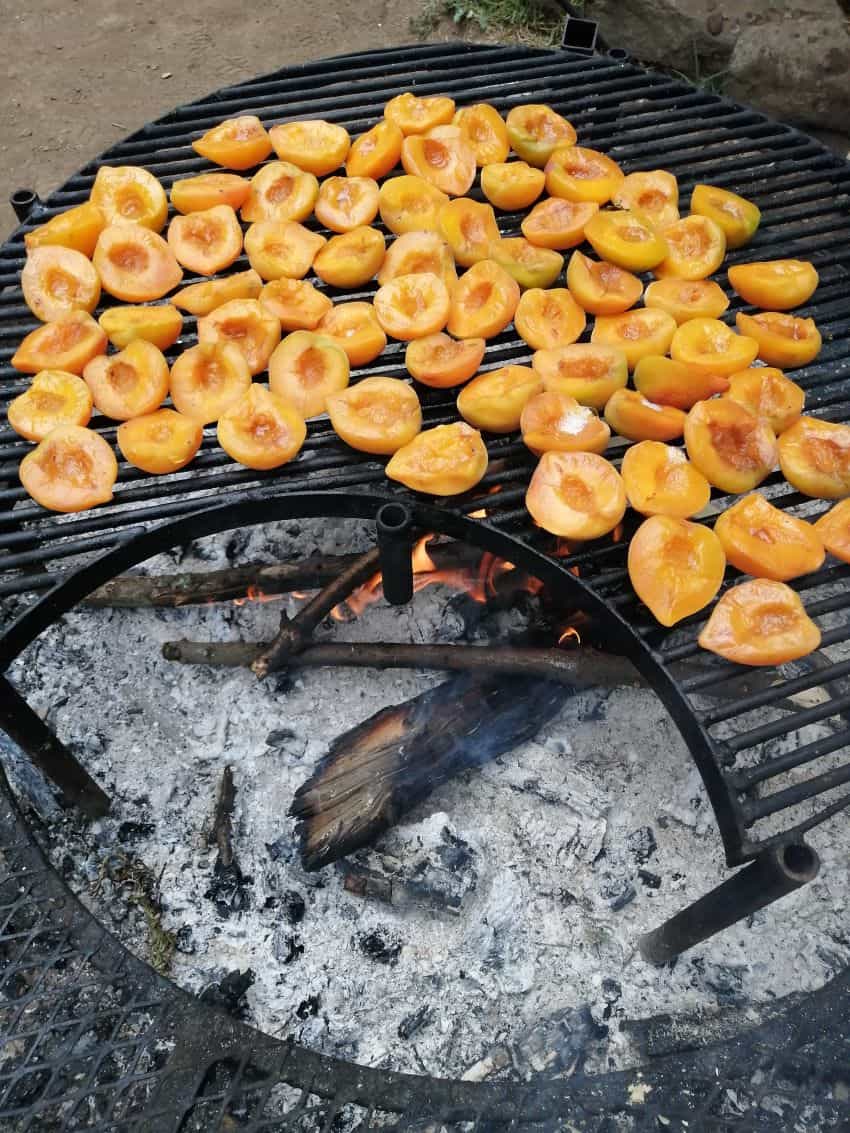
Lingard explains what is seasonally available right now along the forest floor and sets us to looking for today’s supplies — tiny wild clover, fresh pinecones and parsley’s cousin, a wild chervil that grows here.
The woods are majestic with their towering oyamels and massive ground-covering ferns. Over the footfalls of the group can be heard distant norteña music from a neighboring house down the road.
Once back at the cube, we sit down to Chef Tellez’s four-course lunch, all of which is cooked over an open flame outside on the wood-fired grill.
“When I got here, I had no idea how to use wood,” says Tellez “I would add more and more and make these huge fires. Roberto taught me how to use less and how much for each purpose — to smoke, to fry, to sear — there’s a world of possibilities with wood.”
Our first course is roasted beets and root veggies with a tangy homemade jocoque sauce and a sprig of our foraged earthy chervil on top. We move on to a spicy mole colorado with sweet plantain mash at its center, dusted with Parmesan cheese.
The main dish is a thick slice of pork belly, just slightly seared over the grill and placed atop pumpkin seed and sweet potato mash. For dessert, there are grilled peaches with homemade ice cream and a buttery crumble.

Each course is accompanied by a cocktail, often the result of a local sponsor of the event — on this Sunday we had Nami sake and Haiku rice beer, both made in Mexico.
While Tellez serves as chef-in-residence, Cubo has at least two other guest chefs each month that present their own culinary concepts, always with the prerequisite that their menu will need to be adaptable to either the pit oven or the grill.
The Cubo folks encourage chefs to work with as many of the seasonally available products from the area that they can, Lingard says.
The food is gourmet and its presentation chic, and the space and ambiance of Cubo is laid back, with time for sitting on the grass, sipping an after-lunch cocktail and even a bit of dozing off in the sun.
The smell of the fire impregnates your clothes and hair, and a curated soundtrack encourages lingering and making small talk with strangers. It’s an atmosphere that guests can appreciate at the end of a long year of lockdowns and pandemic worries.
“I think the pandemic made people realize that mostly we’re kind of sick of dining among four walls,” says Lingard. “[Since] we’ve been open, we haven’t had a single guest who hasn’t had a blast.”
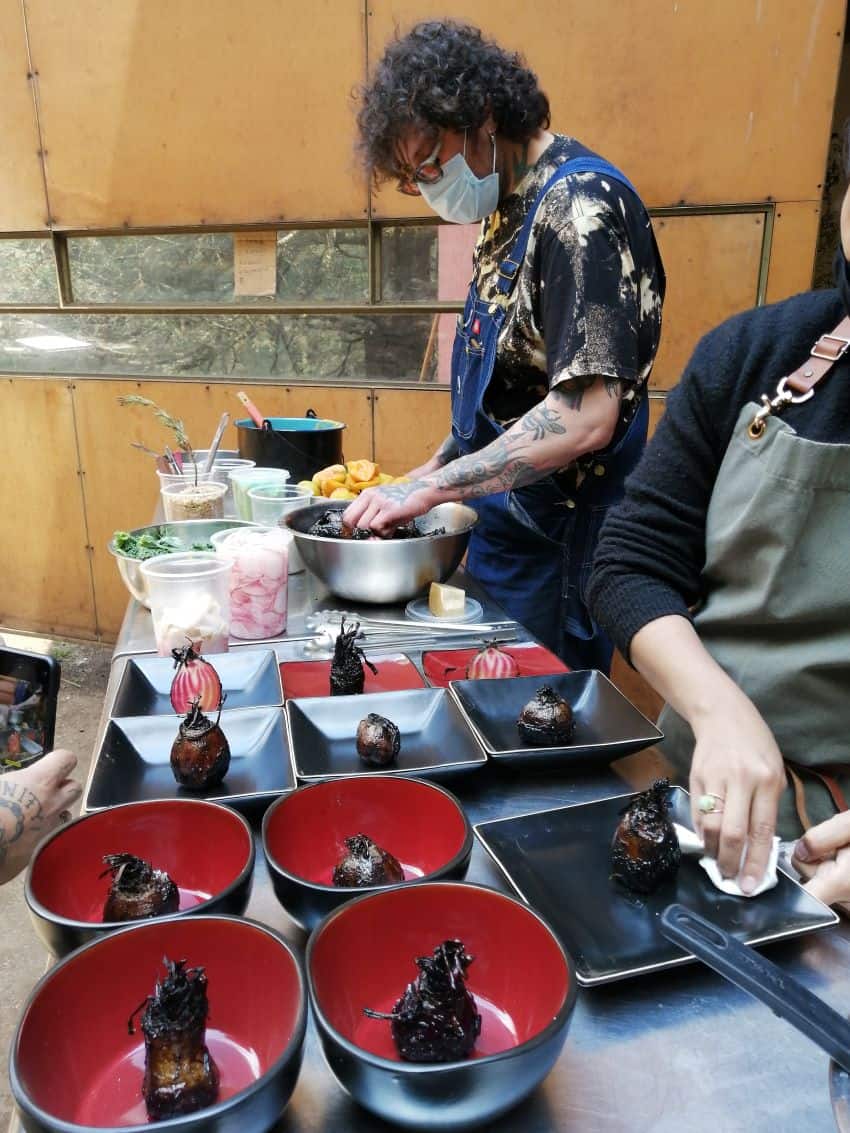
You can contact @cubo.mx or @thecuriousmexican on Instagram. The price is around US $60 for the day and covers food, drink and transportation.
Lydia Carey is a regular contributor to Mexico News Daily.
